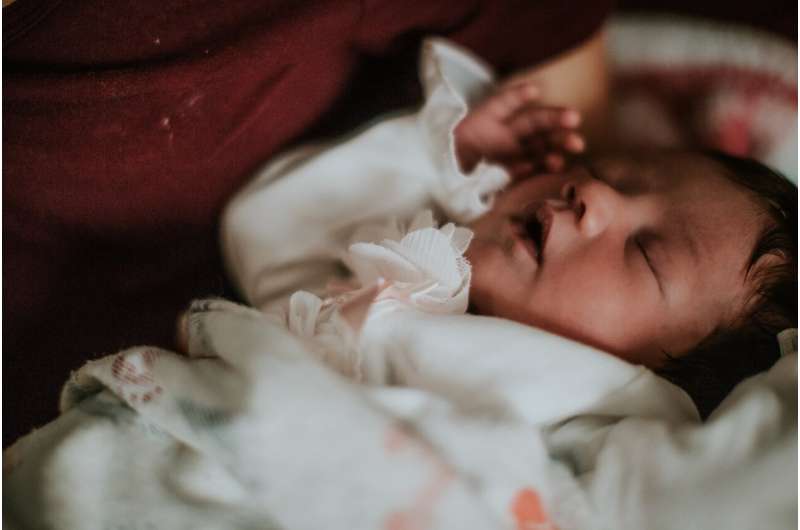This article has been reviewed according to Science X's editorial process and policies. Editors have highlighted the following attributes while ensuring the content's credibility:
fact-checked
peer-reviewed publication
trusted source
proofread
Family language tied to hospitalization rates of feverish babies

Babies of parents who speak a language other than English may be more likely to be hospitalized unnecessarily when visiting the emergency department for high fevers, according to a recent study published in JAMA Pediatrics.
Care for infants with fevers has greatly shifted in recent years, said Jacqueline Corboy, MD, assistant professor of Pediatrics in the Division of Emergency Medicine, who was a co-author of the study, with the most recent evidence suggesting that babies with fevers who meet certain criteria identifying them as being low-risk for invasive bacterial infections can be safely managed by their primary care pediatricians after undergoing evaluation.
"The American Academy of Pediatrics recently came out with guidelines acknowledging that we have enough evidence now to suggest that in infants who are 29 to 60 days old, there is less of an incidence of invasive bacterial infections, most particularly meningitis and bloodborne bacterial illnesses. This means that more aggressive testing (spinal fluid testing) and treatment with antibiotics may not always be indicated," Corboy said.
Following the update, Corboy and her collaborators wanted to understand what impact the guidance might have on health disparities in different patient populations.
For the current study, Corboy and her fellow investigators analyzed the results of a previous study that tracked the care of more than 4,000 infants with fevers across 34 medical centers in the U.S. Investigators then compared the care the infants received with their race, ethnicity and the language spoken during their visit to the emergency department.
They found that infants whose parents spoke a language other than English were more likely to be hospitalized for fever, even though recent guidance doesn't call for it, according to the study. No correlation was found between the infants' race and ethnicity and the type of care they received, according to the study.
"Families who chose a language other than English for their medical visit were more likely to be admitted, but they weren't more likely to undergo more invasive testing or get antibiotics," Corboy said. "It was a little bit surprising that it was language and not race and ethnicity that showed this signal, but what it really does point out is the importance of communicating with the family in their preferred language using a native language speaker or a dedicated interpreter service."
The results may suggest some providers are concerned about effective communication with families who speak a language other than English and may opt for more conservative care, Corboy said.
"We don't know for a fact what the driver is, but there's a signal there," Corboy said. "This opens up the door for more investigation further down the road as to what is the most important factor driving deviation from care in someone whose preferred language is not English."
More information: Colleen K. Gutman et al, Race, Ethnicity, Language, and the Treatment of Low-Risk Febrile Infants, JAMA Pediatrics (2023). DOI: 10.1001/jamapediatrics.2023.4890




















